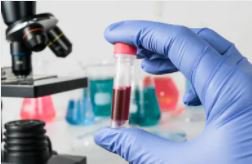Adapted care for cancer patients due to COVID-19
The Cancer Research UK Cambridge Centre and six other leading European cancer centres share knowledge and experiences to define new guidelines for treating cancer patients during the COVID-19 pandemic.
 The Cancer Research UK Cambridge Centre and six other leading European cancer centres share knowledge and experiences to define new guidelines for treating cancer patients during the COVID-19 pandemic.
The Cancer Research UK Cambridge Centre and six other leading European cancer centres share knowledge and experiences to define new guidelines for treating cancer patients during the COVID-19 pandemic.
The current crisis presents healthcare professionals with the challenge of managing the rapidly increasing numbers of COVID-19 patients while continuing to provide the best possible care for cancer patients.
Seven leading European cancer centres, forming an alliance known as Cancer Core Europe (CCE), have been forced by COVID-19 to adapt their approach to the treatment of patients with cancer, while maintaining the same high quality of care.
The Cancer Research UK Cambridge Centre clinical cancer services are provided by Cambridge University Hospitals (CUH) and Royal Papworth Hospital.
Clinical staff at CUH who contributed their expertise across disciplines (surgery, radiology, pathology, radiation oncology and medical oncology), including: Jean Abraham, Thankamma Ajithkumar, Richard Baird, Gill Barnett, Emma Beddowes, Richard Benson, Pippa Corrie, Gary Doherty, Hugo Ford, Richard Gilbertson, David Gilligan, Luke Hughes-Davies, Ekpemi Irune, Rashmi Jadon, Sarah Jefferies, Siong-Seng Liau, Karen McAdam, Elizabeth Smyth, Elizabeth Tweedie and Charles Wilson.
The specialist centres not only want to prevent the spread of the virus in general, but also to protect patients with cancer whose disease and treatment make them especially vulnerable to complications if infected.
They describe the measures they have taken in an article published today in the journal Nature Medicine.
In the space of just a few weeks, the seven European cancer centres have had to drastically revise and reorganise their patient care and scientific research due to the coronavirus crisis.
For example: treatments have been postponed or adjusted to protect the immune systems of patients with cancer; contact has been limited or converted to remote interactions, complete with as many guarantees as possible that this will not affect patient care; and clinical studies have been reassessed to see if they should continue.
All of the cancer centres have taken steps to maintain high standards of care despite facing shortages of personal protective equipment, beds, staff and other resources.
For more information visit: CUH News
Published April 16, 2020
Latest from CCTU
Targeting the immune system could prevent future heart attacks, Cambridge-led trial suggests
Cambridge researchers have discovered that an existing therapy which boosts protective immune cells in people who have recently had heart attacks reduces…
Cambridge study finds hot flush treatment has anti-breast cancer activity
A drug mimicking the hormone progesterone has anti-cancer activity when used together with conventional anti-oestrogen treatment for women with breast…
Innovative trial offers hope on World Pancreatic Cancer Day
An early-stage trial, recently opened at Addenbrooke's Hospital, offers new hope to people with late-stage pancreatic cancer and their families.
…






